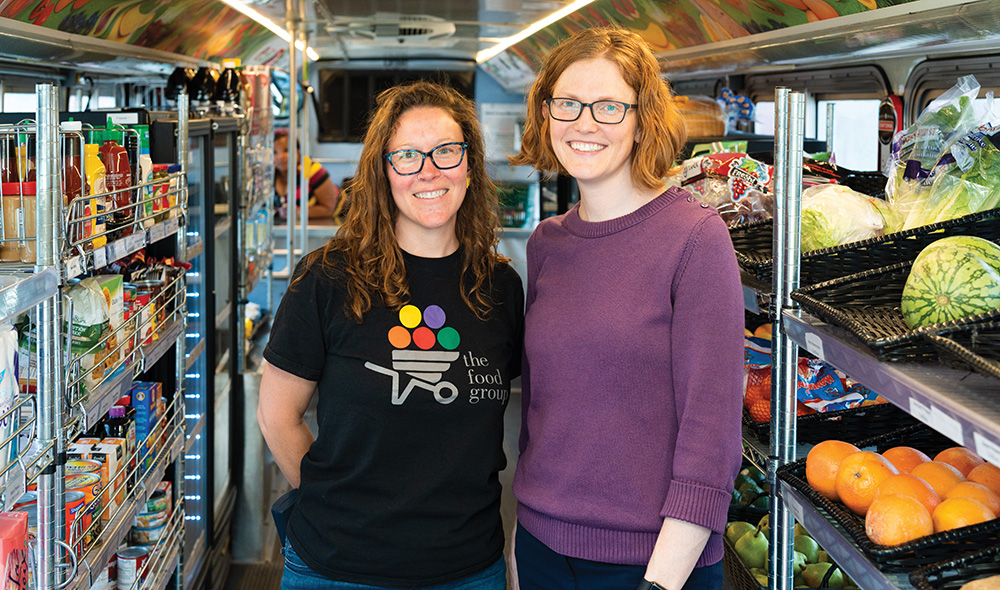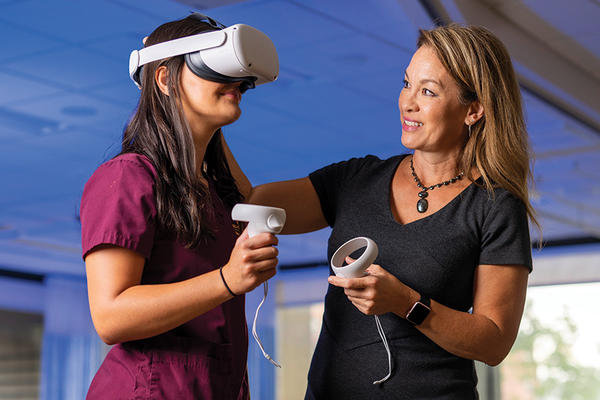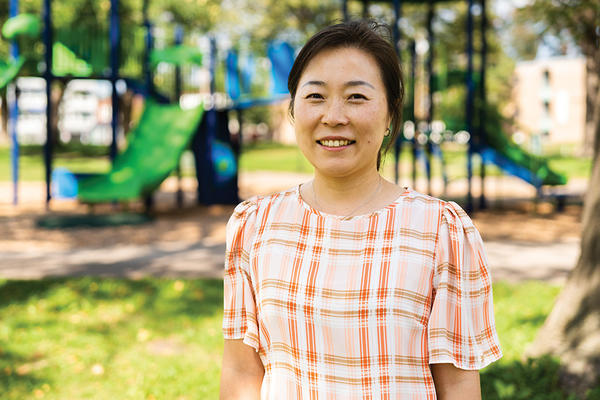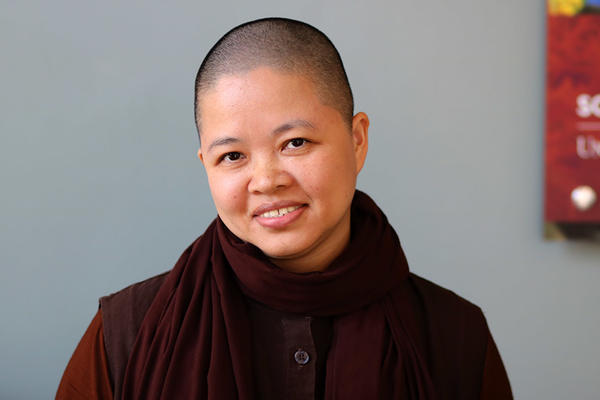Striving to increase equity in diet and weight-related health outcomes
Horning receives NIH funding to evaluate Twin Cities Mobile Market
October 25, 2022
Brett Stursa

Twin Cities Mobile Market Program Manager Stephanie Wagner and Associate Professor Melissa Horning in a Twin Cities Mobile Market, which sells quality groceries from a repurposed city bus.
Associate Professor Melissa Horning’s research seeks to increase equity in diet and weight-related health outcomes by improving access to and intake of healthy foods.
“Individuals who have racial and ethnic minoritized identities and those who experience low incomes are disproportionately impacted by poor nutrition and related health outcomes such as type 2 diabetes and high blood pressure,” says Horning, PhD, RN, PHN. “Lack of affordable, healthy food access and food insecurity are believed to be important contributing factors to these inequities.”
Increasingly mobile food markets are being utilized to address these inequities because they bring low-cost, healthy food directly to underserved populations. “There is growing evidence that mobile produce markets may increase fruit and vegetable intake, but there is little research on full-service mobile markets that can holistically meet people’s food needs or whether mobile market shopping improves food insecurity,” says Horning.
Twin Cities Mobile Market sells quality groceries from a repurposed city bus that regularly visits low-income community sites. The shelves are stocked in ways that nudge shoppers toward healthier purchases. Foods are sold at prices approximately 10% below those of grocery stores and include foods from all food groups and pantry staples. SNAP/EBT is accepted, and a state-funded fruit/vegetable incentive program, Market Bucks, is available to shoppers.
Horning and her community partners at the Twin Cities Mobile Market were recently awarded a National Institutes of Health grant for Evaluating Diet, Food Insecurity, and Food Purchasing Outcomes of a Full-Service Mobile Food Market with a Cluster Randomized Trial. The project is assessing the impact of the full-service Twin Cities Mobile Market in underserved communities. “What this grant allows us to do is to know whether a full-service mobile market shifts the quality of the foods that people eat and buy and improves their level of food security. We will also explore what factors allow and encourage community members to use the Mobile Market,” says Horning.
The cluster randomized trial will involve 12 community sites in three waves that will either receive Mobile Market service right away after baseline data collection or after about one year. Across these community sites, Horning is aiming to have 264 people take part in study activities. The primary trial goals are to compare baseline to follow-up changes in diet quality (using 24-hour dietary recalls), fruit and vegetable purchases (by collecting one month of fruit and vegetable purchase data), and level of food insecurity between the sites that receive mobile market service and those that don’t during this period.
“Findings will provide evidence on the effectiveness of a full-service mobile market to improve diet, food security and food purchasing habits,” says Horning. “As policy makers aim to address food insecurity that the pandemic placed into the spotlight and support innovative food programs that have demonstrated positive impact on communities, this research will provide timely evidence to inform policy and legislative decisions.”
Working in partnership to find solutions to food inequality, access
As Horning develops her research program, she knows she wants to continue to work in partnership with the community, leveraging her research skills to support and invigorate the work they do every day. A conversation over coffee in 2016 about mobile markets led to collaborating with the Twin Cities Mobile Market. “This research started from a place of mutual respect and trust, so it’s been a really natural partnership,” says Horning.
No matter the findings of this grant, Horning is committed to a research trajectory that includes community partnerships. “The goal, long term, is to work in partnership with community to develop and support solutions that address food insecurity and food access in our communities,” says Horning.


